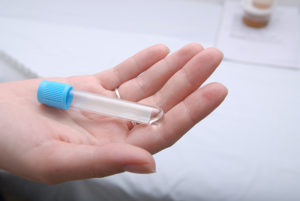
If your water is usually clear but suddenly gets cloudy after rain, then there could be something wrong with your well and / or septic system. Both critical systems for your home, it’s crucial to have it checked.
Brown or cloudy water after a heavy rain could indicate one of several issues:
- Rusty plumbing or water heater in your home.
- Rainwater Runoff Contamination. – A contamination problem caused from rainwater runoff leaking into your well.
- Septic Cross Contamination. If you have a septic system, then brownish color could indicate a cross contamination issue.
You might not always taste the bacterial contamination, and that’s all the more reason why you need to take it seriously. The color change alone is an issue that needs to be tackled as quickly as possible.
Cloudy Water After Rainstorm – First Things First
There are quite a few things to check before going for a test and fixing the discoloration problem. In other words, the brown color may not be from the well itself. Here are some pointers to help you out:
- If you water has been off for a period of time it is possible that rust and debris can cause the discoloration. The good thing is, the color of the water will get back to normal in no time.
- Rust in the plumbing can cause the brown color. This is particularly the case when both hot and cold water are both discolored in one water outlet. It could also be from the water heater if only the hot water is brown or discolored. If you have a newer home, then you probably have CPVC pipes and these will not rust. In that case, the problem could be from the well itself if the entire home is supplying brown water.
 Time for a Water Test
Time for a Water Test
If the brown water isn’t caused by rusty pipes or the water heater, then we recommend a complete water test. Remember, the worst possible causes of water discoloration could be surface water infiltration or a leaky septic system. The good thing is, a complete water test will give you a better idea of what you’re dealing with. Be sure that the tests include results for:
- Hardness
- Iron concentration
- Iron bacteria
- Dissolved solids
- Total coliform
- Fecal coliform
- E-Coli bacteria
These results could point to the culprit.
Rainwater Runoff
Rainwater runoff contamination is typically caused when surface water finds its way into your well via a leak in the seal or pipe at the wellhead.
This type of leak is likely to bring contaminants down into the well including bacteria, fertilizers or nitrates. When this happens, you’ll end up pumping water that has run off from the ground into your well, and that could be a significant health risk.
Inspect the Wellhead
If you feel that surface water may be leaking into your well, it’s time to take a look at your wellhead. It’s very unlikely heavy rain will affect a well-built and functional water well. Yet, nothing stays perfect forever, and your well is not an exception.
Here are few things to check:
- Is your well cap still intact? A missing or damaged well cap can serve as a passageway for surface water and contaminants into the well. Don’t forget to check the seals, pipes as well as where the cap meets the casing.
- Contaminants may also be seeping through or along the outside of the well casing. Look for cracks in the casing below the wellhead. These cracks could allow dirty water to enter the well. Also, be sure to check the grouting. Old grout that is chipped or cracked could be the culprit.
If you notice any problems, call in a professional to fix the issue. Even if you do not see the issue when you inspect, we still recommend having a professional take a look. Experienced eyes can spot problems that may people may not notice.
Septic Cross Contamination
If you or a neighbor have a septic system, a brownish color or very cloudy water could show a compromised septic system. It goes without saying, this could pose a significant health risk. It’s highly recommended to do a bacterial test to confirm the possible cause of your problem.
If you water test comes back indicating e-coli, fecal coliform or other bacteria, it is time to contact a septic professional. Have them run a complete test on your system. Remember the earlier you detect the problem, you could prevent bigger issues down the road.
The Bottom Line
If you have cloudy water after rainstorm – you need to take it seriously. Check your pipes and water heater and get the water tested. Call in the professionals and keep you and your family safe.

 Time for a Water Test
Time for a Water Test